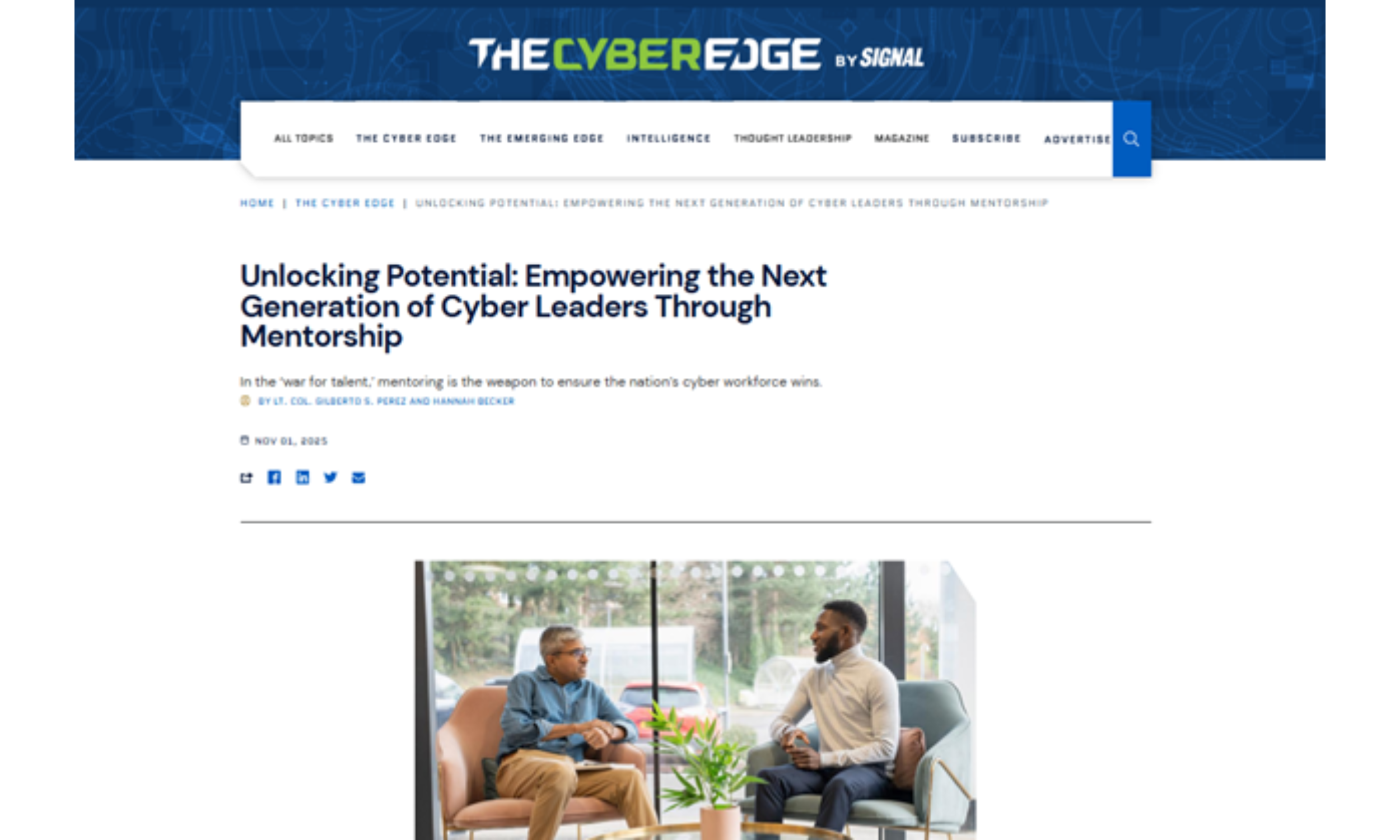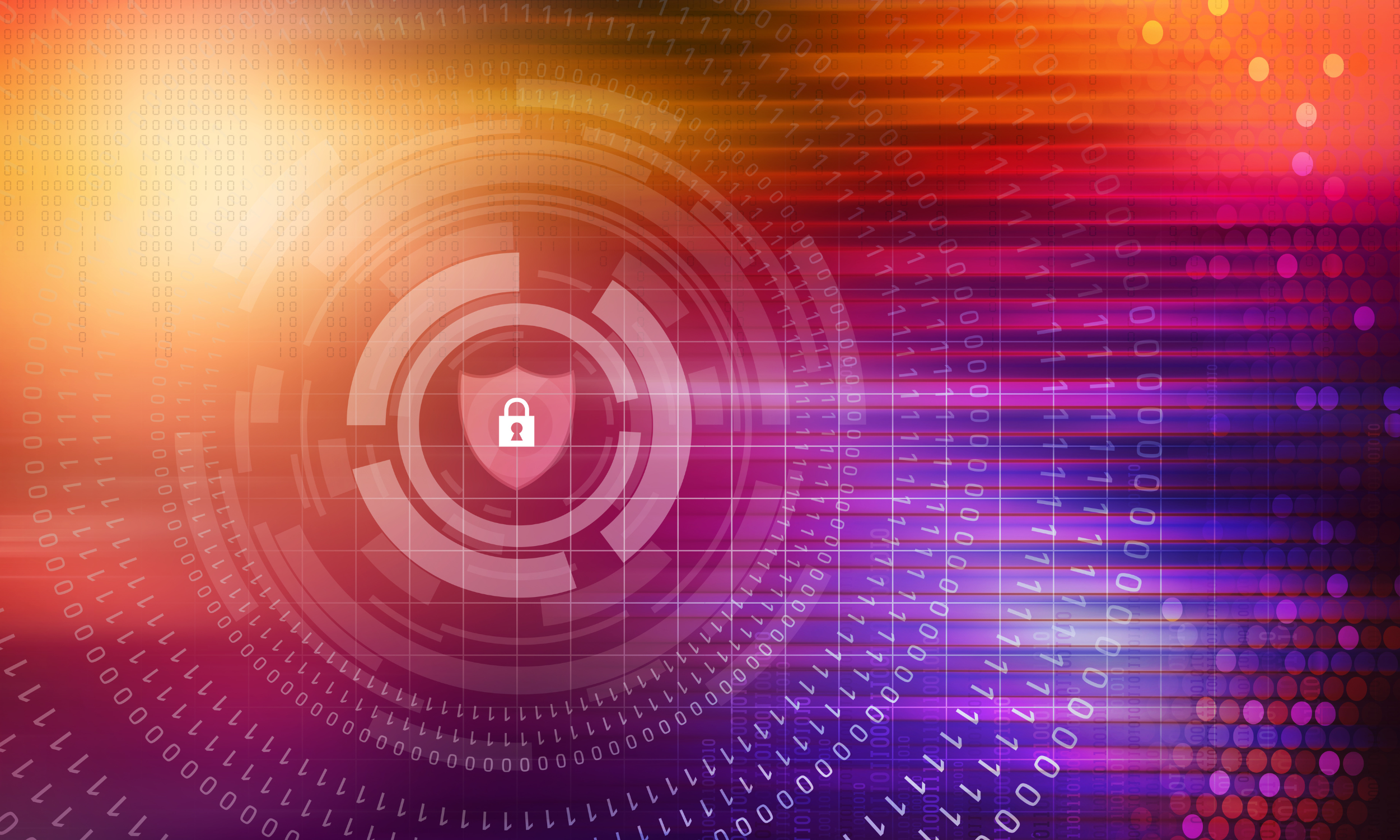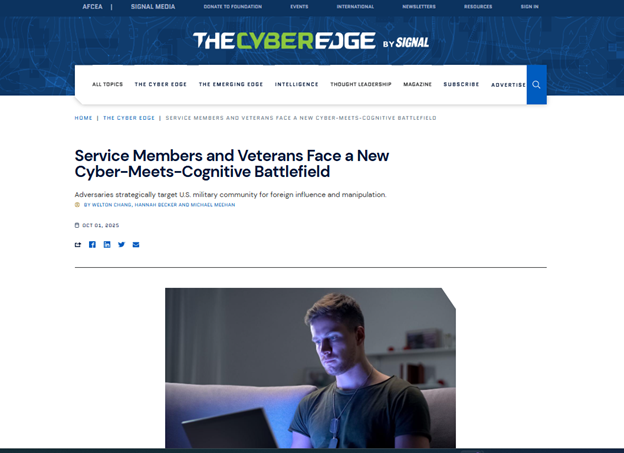
The Cyber Cowgirl™ Blog
Welcome to The Cyber Cowgirl™ Blog - Hannah’s archived collection of early morning thoughts related to cyber, defense, entrepreneurship, and professional development.
Join Hannah on this journey of discovery and discussion as we navigate the Digital Wild West together!

What Does Our Digital Future Hold?
What does our digital future hold? Less depends on prediction than we’d like to believe—and far more depends on responsibility. As technology reshapes how we work, connect, and make decisions, the real question is whether we will lead through the uncertainty or surrender to it.

Information Warfare and Your Social Media Activity
Social media is no longer just a place to share photos and stay connected. Every post, like, and location tag contributes to a digital footprint that can be analyzed, exploited, and weaponized in today’s information battlespace. This post explores how everyday social media activity feeds intelligence collection and influence operations, often without users realizing it. Understanding these risks and adopting simple security habits can help individuals protect themselves, their families, and their communities in an increasingly contested digital environment.

Rethinking intelligence in an information-saturated world
Intelligence work no longer suffers from a lack of information, but from an overabundance of it. The digital age has made vast quantities of data readily accessible, promising faster and safer intelligence collection while introducing new analytical and operational challenges. Access alone does not guarantee insight, and more information does not necessarily produce better intelligence. In an environment defined by speed, scale, and saturation, the real advantage lies in the ability to filter, contextualize, and act on information effectively.

Cyber vs. Traditional Warfighting Domain Debate
Cyber warfare is often framed as a challenge to traditional military power, but this debate misses a more critical reality. Cyber does not replace land, sea, air, or space operations; it reshapes how conflict unfolds across all of them. As a human-made domain defined by speed, attribution ambiguity, and global reach, cyberspace demands new ways of thinking about maneuver, intelligence, and decision making. Understanding how cyber integrates with traditional warfighting domains is now essential for military leaders and intelligence professionals operating in an increasingly complex battlespace.

Wrangling Emerging Technologies
Emerging technologies hold enormous promise, but—much like the powerful livestock on my Pop’s Mississippi farm—they demand respect, training, and a clear understanding of the risks they carry. Just as I learned to manage animals far stronger than myself with situational awareness and disciplined skill, today’s digital tools require thoughtful stewardship to prevent serious harm. The lesson is timeless: capability without caution is dangerous, and those who master the responsible use of new technologies will be best positioned to thrive in an unpredictable world.

The Evolving Role of Cyber Intelligence in National Security
Cyber intelligence is the unseen backbone of modern national security. From detecting online threats to protecting critical infrastructure, it provides early warning and digital defense in a connected world. As technology accelerates, balancing innovation, privacy, and protection has never been more vital.

Challenging the Way You Think
Curiosity used to drive us — now, conformity too often defines us. In Challenging the Way You Think, Hannah Becker shares how a childhood lesson in letting go of obsession shaped her belief in cognitive diversity. True growth, she argues, comes from seeking new ideas, new people, and perspectives that make us uncomfortable.

SIGNAL Magazine - “Unlocking Potential: Empowering the Next Generation of Cyber Leaders Through Mentorship”
Hannah Becker’s latest article in SIGNAL Magazine, , co-authored with Lt. Col. Gilberto S. Perez, examines how mentorship can serve as a critical force multiplier in strengthening America’s cyber workforce. The piece explores the nation’s widening cybersecurity talent gap—an estimated 265,000 unfilled positions—and argues that closing this gap requires more than new training programs or certifications. Becker highlights mentorship as the “difference-maker” in developing confident, capable, and mission-ready cyber professionals. By pairing experienced leaders with emerging talent from diverse and nontraditional backgrounds, mentorship accelerates skill development, fosters resilience, and builds the human connections essential for national defense. Ultimately, the article calls on cyber professionals, educators, and policymakers to view mentorship not as an optional add-on, but as a national security imperative in the fight to secure America’s digital future.

What Makes Us Vulnerable to AI-Enabled Cyber Attacks
Artificial Intelligence is rewriting the rules of cybersecurity — and not in our favor. The same algorithms we use to innovate, automate, and defend are now being weaponized to manipulate human perception and behavior. AI-enabled cyber attacks don’t just exploit code; they exploit cognition. From deepfakes that distort reality to generative tools that lower the barrier for digital crime, these new threats target our psychology as much as our systems. The next frontier of cybersecurity isn’t just about protecting data — it’s about protecting decision-making itself.

The Weaponization of Artificial Intelligence (AI)
Artificial Intelligence has transformed how we live, work, and defend ourselves — but it’s also being turned into a weapon. From AI-powered cyberattacks that outsmart human defenders to deepfakes that erode public trust and autonomous weapons capable of lethal decisions without human oversight, the age of weaponized AI has arrived. As innovation races ahead of regulation, the world faces an urgent question: how do we control a technology that can learn to deceive, destroy, and decide who lives or dies?

The Great Disconnect: Rebuilding Community in a Digital Age
or years, social media felt like a lifeline—helping me stay connected during military moves, build a business from scratch, and maintain friendships across time zones. But somewhere along the way, that connection turned hollow. The same platforms that once fostered community have become digital battlegrounds of misinformation, outrage, and isolation. After years researching the weaponization of social media, I’ve come to see this technology not as a bridge but as a barrier—an experiment that exposed what we truly crave: real human connection. As the digital Tower of Babel crumbles, we’re left with an opportunity—and a responsibility—to rebuild community offline, grounded in authenticity, empathy, and shared purpose.

SIGNAL Magazine - “Service Members and Veterans Face a New Cyber-Meets-Cognitive Battlefield”
Hannah Becker’s latest article in SIGNAL Magazine, examines how U.S. service members and veterans are increasingly targeted in a new cyber-meets-cognitive battlefield. The piece highlights how foreign adversaries such as Russia, China, Iran, and North Korea exploit veterans’ trusted voices to spread disinformation, recruit unwitting participants, and deepen social divisions. Becker warns that manipulated narratives shared by veterans can ripple across American society, amplifying adversary influence at home. She underscores the urgent need for digital literacy, source verification, and stronger community awareness to counter these tactics. Ultimately, the article calls on veterans, policymakers, and citizens alike to recognize the threat of cognitive warfare and take proactive steps to safeguard America’s most trusted messengers.

The War, The War…Which War?
The women I grew up around never had to explain what they meant when they said “the war.” Whether it was World War II, Vietnam, Desert Storm, or Bosnia, everyone at my grandmother’s kitchen table already knew. Their shorthand was born of loss, resilience, and a bond forged by sacrifice. Years later, I swore my life would be different—that I’d never marry a soldier, never find myself living in the shadow of conflict. But after 9/11, fate proved me wrong. Now, like the women before me, I speak of life “before the war” and “after the war.” The memories, anniversaries, and grief remain part of daily life—reminders not just of what was lost, but of what could have been.

The Jellyfish Effect: Why Cyber Intelligence Matters Against Emerging Threats
Emerging cyber threats can be as deceptive as jellyfish in the ocean—fascinating at first glance, but painful if not recognized in time. As technology evolves, new “jellyfish” surface in the digital realm, from AI-driven malware to complex, multi-point attacks. Cyber intelligence offers a way to detect these threats early, providing real-time insights that strengthen defenses and guide smarter risk management. Yet, the challenge remains: balancing powerful intelligence tools with privacy, ethics, and public trust.

Digital Natives: A New Generation of Warfighters
Meet Generation Z - the digital native warfighters! Born between 1997 and 2012, Gen Z service members bring fresh perspectives shaped by events like COVID-19, rising cyber threats, and evolving global conflicts. As true digital natives, they present both challenges and opportunities for military leaders adapting to social media’s influence on communication, recruitment, and readiness.

How Social Media Intelligence (SOCMINT) Collection Impacts the Public
Social Media Intelligence (SOCMINT) has become a powerful tool for governments, businesses, and organizations to gather insights from the endless stream of online data. While this practice can support public safety, crisis response, and even healthcare research, it also raises pressing concerns about privacy, trust, and surveillance. Studies show that awareness of monitoring often alters behavior—leading to self-censorship, anxiety, and reduced trust in institutions. Recent controversies, from Instagram’s real-time location tracking feature to proposed U.S. military monitoring of cadets, highlight the tension between security objectives and individual freedoms. Ultimately, SOCMINT’s impact extends far beyond data collection—it shapes how people perceive safety, community, and the organizations that hold power in their lives.

Where AI Stops and We Begin
AI is everywhere—writing resumes, changing warfare, even reshaping how doctors interact with patients. Some of these tools save time and streamline work, but others leave us frustrated, disconnected, or questioning whether convenience is worth the cost. As technology blurs the line between human and machine, we have to ask: where does AI stop, and where do we begin? True creativity, empathy, and authenticity can’t be replicated by algorithms, no matter how advanced they become. The danger is letting automation erode the messy, beautiful, human qualities that make life meaningful. The future won’t be determined by another software update—it will be shaped by our willingness to protect what should never be outsourced.

Finding Connection in the Dead Zone
In today’s digitally-driven world, stepping into the “Dead Zone” provided something increasingly difficult to attain - a chance at a real connection. Technology has done a lot of good and a lot of bad for humankind. Navigating the uncharted wilderness of cyberspace requires us to revitalize our ability to connect, engage, and impact the physical world. Check out my field notes from a recent trek in the wilderness.

Behind the Mic: Lessons Learned From 20 Episodes of Tipping Spears
Back in January, I was coming off a tough year and craving a project that reconnected me with the work I love—cyber, defense, and national security. A mentor suggested I start a podcast, and without overthinking it, Tipping Spears was born. Twenty episodes later, I’ve had the privilege of speaking with some of the most inspiring and forward-thinking leaders in the field. From warfighters and intelligence scholars to policy experts and nonprofit execs, each guest has challenged the way I think. This podcast isn’t just about information—it’s about sharpening perspective. If you're looking for real conversations about the future of our world, this one's for you.

Mirror, Mirror on the Wall: What Does Technology Say About Us All?
Explore how technology reflects—not causes—many of our societal challenges. This article examines the human behaviors behind digital tools, the ethical cost of distraction, and why real solutions require connection, responsibility, and values—not automation.
